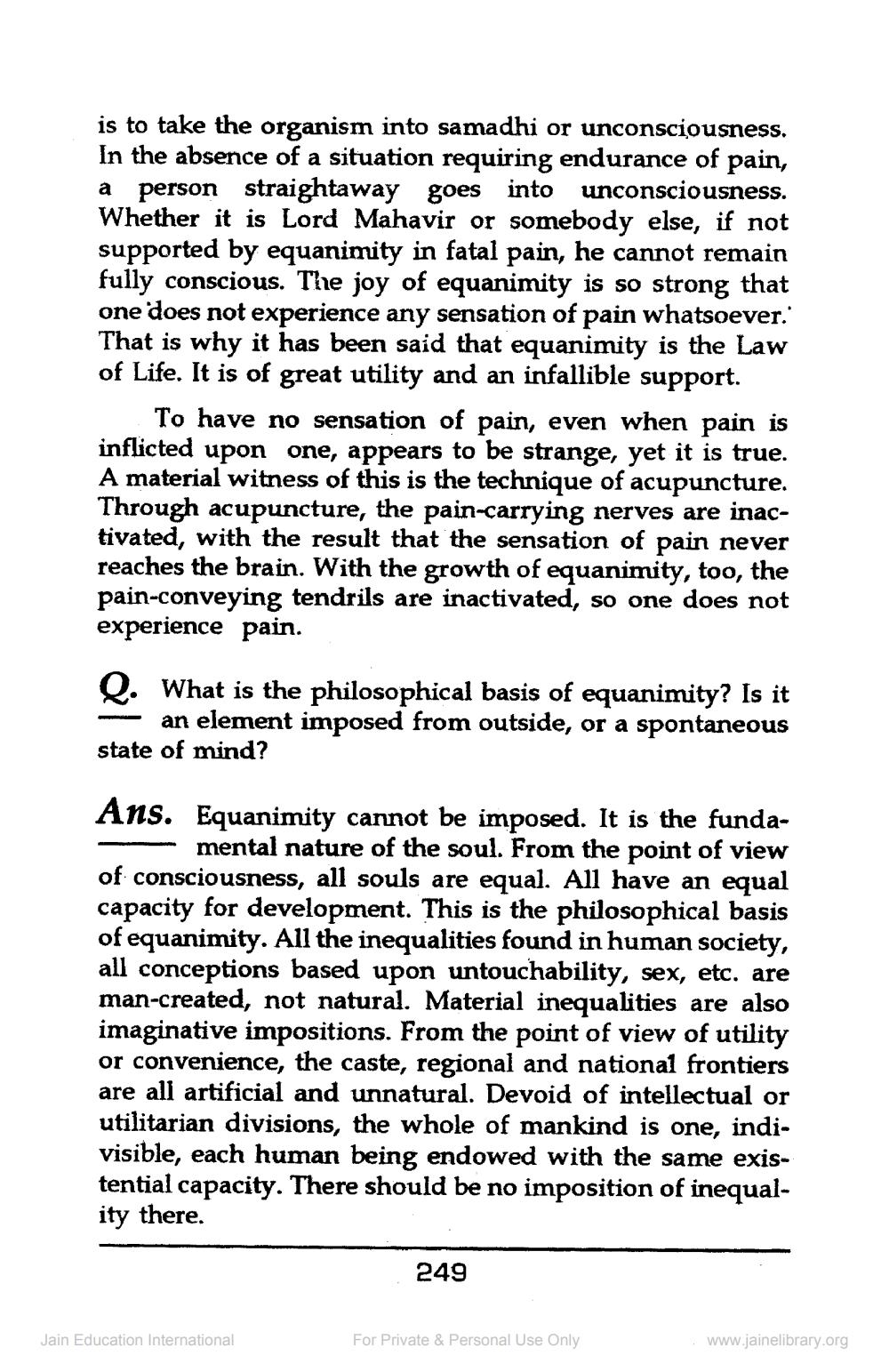________________
is to take the organism into samadhi or unconsciousness. In the absence of a situation requiring endurance of pain,
a
person straightaway goes into unconsciousness. Whether it is Lord Mahavir or somebody else, if not supported by equanimity in fatal pain, he cannot remain fully conscious. The joy of equanimity is so strong that one does not experience any sensation of pain whatsoever. That is why it has been said that equanimity is the Law of Life. It is of great utility and an infallible support.
To have no sensation of pain, even when pain is inflicted upon one, appears to be strange, yet it is true. A material witness of this is the technique of acupuncture. Through acupuncture, the pain-carrying nerves are inactivated, with the result that the sensation of pain never reaches the brain. With the growth of equanimity, too, the pain-conveying tendrils are inactivated, so one does not experience pain.
Q. What is the philosophical basis of equanimity? Is it an element imposed from outside, or a spontaneous state of mind?
Ans. Equanimity cannot be imposed. It is the fundamental nature of the soul. From the point of view of consciousness, all souls are equal. All have an equal capacity for development. This is the philosophical basis of equanimity. All the inequalities found in human society, all conceptions based upon untouchability, sex, etc. are man-created, not natural. Material inequalities are also imaginative impositions. From the point of view of utility or convenience, the caste, regional and national frontiers are all artificial and unnatural. Devoid of intellectual or utilitarian divisions, the whole of mankind is one, indivisible, each human being endowed with the same existential capacity. There should be no imposition of inequality there.
Jain Education International
249
For Private & Personal Use Only
www.jainelibrary.org




